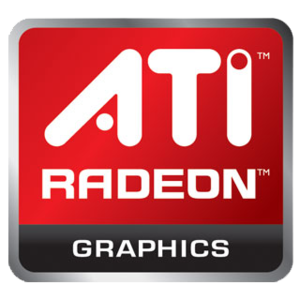We are still actively working on the spam issue.
Difference between revisions of "Radeon"
m |
m (→Compiling) |
||
| Line 54: | Line 54: | ||
# {{ic|cd xf86-video-ati}} | # {{ic|cd xf86-video-ati}} | ||
# {{ic|<nowiki>./autogen.sh --prefix=/opt/xorg</nowiki>}} | # {{ic|<nowiki>./autogen.sh --prefix=/opt/xorg</nowiki>}} | ||
| − | # {{ic|make}} | + | # {{ic|make -jn CFLAGS="-O3 -march=native -mtune=native"}}, where n is the number of jobs you want to spawn |
# {{ic|sudo make install}} | # {{ic|sudo make install}} | ||
| − | Example xorg.conf: http://pastebin.com/raw/aE3e21Bn | + | Example xorg.conf (compulsory reading, since you need to determine the ModulePath under files): http://pastebin.com/raw/aE3e21Bn |
'''IMPORTANT''': Recompiling the driver will become a necessity after each major X upgrade (eg: 1.16 --> 1.17, not 1.16 --> 1.16.4), due to ABI changes. | '''IMPORTANT''': Recompiling the driver will become a necessity after each major X upgrade (eg: 1.16 --> 1.17, not 1.16 --> 1.16.4), due to ABI changes. | ||
Revision as of 00:19, 24 December 2016
Radeon is part of the Linux open-source graphics driver stack for AMD/ATI Radeon graphics cards that is often replaced by fglrx, the proprietary alternative, due to seemingly poor 3D acceleration and threading (soon to be provided by Mesa).
The performance issues are generally caused by generic Xorg profiles which have to cater to a myriad AMD GPUs with a different feature-set and capabilities, forcing them to only enable features that are common to most cards, or none at all (thus, the driver works as is).
To combat this, one must look at the feature matrix to determine what performance oriented options are safe to enable.
Contents
Building from source
This guide will attempt to improve 3D acceleration (or outright enable it, if it's disabled) by making use of the new feature-set, namely, DRI3.
Before starting
Check your cards feature-set: https://wiki.freedesktop.org/xorg/RadeonFeature/#index6h2 "Decoder ring for engineering vs marketing names" will tell you what model your card actually is.
Back your xorg.conf up by issuing sudo cp /etc/X11/xorg.conf /etc/X11/xorg.conf~
Requirements & dependencies
`-- media-libs/mesa (>=11.0, preferably -git[1]) `-- x11-libs/libdrm (>=2.4.58, preferably -git[2], since this is the library DRI uses) `-- x11-libs/libpciaccess (>=0.8.0) `-- x11-base/xorg-server (ideally, >=1.17) `-- x11-libs/glamor (>=0.6) `-- virtual/udev `-- x11-proto/fontsproto `-- x11-proto/randrproto `-- x11-proto/renderproto `-- x11-proto/videoproto `-- x11-proto/xextproto `-- x11-proto/xf86driproto `-- x11-proto/xproto `-- sys-devel/automake (>1.15) `-- sys-devel/autoconf (>=2.69) `-- sys-devel/libtool (>=2.4) `-- sys-devel/m4 `-- x11-misc/util-macros (>=1.18) `-- media-fonts/font-util (>=1.2.0) `-- virtual/pkgconfig `-- x11-proto/glproto `-- x11-proto/dri2proto `-- x11-proto/dri3proto `-- x11-proto/xineramaproto
Certain package managers can automatically build the dependency tree for you. However, you ought to double check to make sure the above requirements coincide, in terms of versions.
- Aptitude: run
sudo apt-get build-dep xserver-xorg-video-ati; - Yum: run
sudo yum-builddep xorg-x11-drv-ati; - Portage: emerge the actual driver to satisfy all dependencies;
- BUILDPKG (Arch): run
sudo makepkg -s xf86-video-ati.
Compiling
git clone git://anongit.freedesktop.org/xorg/driver/xf86-video-aticd xf86-video-ati./autogen.sh --prefix=/opt/xorg, where n is the number of jobs you want to spawnsudo make install
Example xorg.conf (compulsory reading, since you need to determine the ModulePath under files): http://pastebin.com/raw/aE3e21Bn
IMPORTANT: Recompiling the driver will become a necessity after each major X upgrade (eg: 1.16 --> 1.17, not 1.16 --> 1.16.4), due to ABI changes.
Testing
To ensure DRI3 is enabled, run cat /var/log/Xorg.0.log | grep -i DRI3.
Output should be as follows:
[ 14.031] (**) RADEON(0): Option "DRI3" "on" [ 16.723] (**) RADEON(0): DRI3 enabled
